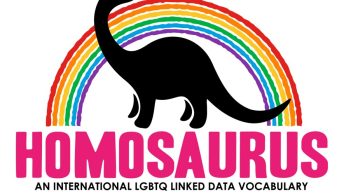He’re is a list of 15 ESR projects in various European countries where PhD candidates can apply for.
More information you can find here.
Project 1: Parent-child conversations about subject domains and occupations (UK)
Parents’ play and conversations with their children follow gender-stereotypical patterns (i.e., language arts courses for daughters, science courses for sons). The aims of this PhD project are to determine gender stereotypes in parental beliefs that contribute to children’s choices and to identify communication patterns that explain parent influence on children’s subjects and occupational choices.
Project 2: Gendered pathways to professional life (Finland)
Adolescents’ gendered pathways to science, technology, engineering, and mathematics (STEM) careers change during high school: Girls’ interest towards languages increases while towards math it decreases, whereas among boys math interest increases. The aims of this PhD project are to assess factors that predict adolescents’ educational and professional pathways and to validate situational factors for predicting (non)gendered pathways.
Project 3: Acting out gender identity — Self-portrayal in digital media (Germany)
Social media are changing the techniques for the social and cultural construction of gender. Social media have transformed both the private discourses of adolescents with their peers and the presentation of adolescents’ developing professional identities. The aims of this PhD project are to identify how adolescents communicate their gender and professional aspirations in digital media and to assess the relation between (de-)gendered self-portrayals in digital media and professional aspirations.
Project 4: Sexist organizational climate and gender-based harassment. Obstacles to careers in male-dominated fields (Switzerland)
Sexist organizational climate and gender-based verbal and physical harassment are more common in male-dominated than in female-dominated professions. The aims of this PhD project are to assess the role of experienced gender-based harassment or perceived risk of such harassment for career choices and to identify strategies that help to build a successful career despite a higher risk of gender-based victimization.
Project 5: Challenging manhood: When men strive for male-atypical professions (Czech Republic)
Men are underrepresented in male-atypical professions like childcare. The incongruence between the male gender role and female-typed role requirements in these professions can have negative consequences for men. The aims of this PhD project are to identify factors that may empower men to overcome gender norm challenges in their professional life and to examine men’s gender role stress when striving for male-atypical professional roles.
Project 6: Networking for gender equality and diversity (the Netherlands)
Informal organization processes, particularly networking, can change or diminish gender inequalities. Diversity networks for women and sexual and gender minorities are seen as a best practice of diversity management to counter the power of informal ‘old boys’ networks. The aims of this PhD project are to identify differential career patterns of members and non-members of diversity networks by examining their network structures and networking practices and to examine the dynamic factors predicting benefits of networking for gender diversity and equality.
Project 7: Sexual and gender minorities on their pathways to leadership (UK)
Academic literature and leadership development programs have turned to sexual and gender minorities (SGM) leadership and allyship in recent years. The aim of this project is to develop a qualitative study of LGBT leadership centred on the UK (where such programs exist) with additional data collection in Italy (where workplace discrimination protection is lacking). The research will describe SGM’s challenges and opportunities in pathways to leadership and the factors that determine SGM’s pathways to leadership cross-culturally.
Project 8: What’s on TV? The role of gender and social status in media representation (Germany)
Media coverage strongly relies on gendered patterns of representation and addresses the audience with well-known stereotypes, contributing to gender-imbalanced representation of women and men in certain professions. The aims of this PhD project are to identify gendered forms of media representation depending on social status on public television and to assess differences in gendered media representations between privileged and disadvantaged social groups in public television.
Project 9: Being well prepared — A gender-related career setback training (Finland)
High self-efficacy and preparation for possible setbacks contributes to successful career transitions. People of diverse genders and sexualities may experience particular setbacks in their career transitions because of gender stereotyping. The aims of this PhD project are to identify strategies that may help people of diverse genders and sexualities to overcome gender-related career setbacks and to develop and validate a career setback training.
Project 10: Language and images — Social inclusion through subtle cues in organisational communication (Italy)
Across Europe, companies vary in the extent to which they communicate the value of inclusion through the language and images they use. Language plays a pivotal role in discriminating and excluding women, gay men, and lesbians. The aims of this PhD project are to identify language and images that contribute to social exclusion and inclusion in organisational communication and to assess significant subtle cues in organisational communication that increase social inclusion perceived by members of under-represented groups.
Project 11: Making a good case for gender diversity — Pathbreaking organisational communication (Switzerland)
Besides subtle cues in language and images, the content of organisational communication (e.g., homepage, newsletter, social media appearance) can encourage people underrepresented in certain professions and/or positions to apply for gender-atypical jobs (e.g., men as child care workers). The aims of this PhD project are to identify messages in organisational communication that promote gender diversity effectively and to determine which aspects in organisational communication function as persuasive messages influencing potential candidates’ attitudes towards gender diversity and their corresponding professional choices favourably.
Project 12: Implementing gender diversity interventions effectively (Sweden)
Employers are in need of a more balanced representation of people of diverse genders and sexualities in their companies. The aims of this PhD project are to assess people’s attitudes towards various gender diversity interventions in personnel selection and to determine potential candidates’ reactions to gender diversity interventions in personnel selection procedures, to understand how such measures may encourage people to enter occupations in which they are under-represented.
Project 13: Benchmarking current diversity management strategies (Switzerland)
Although many different gender diversity strategies are currently in use in companies (e.g., leadership accountability, measurement, reporting, pay equity, flexible work arrangement), their effectiveness in terms of changing the culture of the organizations to become more inclusive as well as changing the representation so that it becomes more gender-balanced is disputed. The aims of this PhD projects are to assess existing diversity management strategies in organisations and to benchmark diversity management strategies.
Project 14: Bias circumvention — A scientific evaluation of gender diversity training (The Netherlands)
Diversity trainings are a core component of diversity management and among the most frequent practices to promote social inclusion in organisations. Types of diversity training described in the literature include bias awareness, perspective taking, or interpersonal sensitivity, and encompass various interventions and exercises. The aims of this PhD project are to evaluate selected gender diversity trainings systematically and to identify effective gender diversity trainings.
Project 15: Train the sponsor — Implementation of a new mentoring training (Switzerland)
Effective mentoring training foster equal career opportunities for women and men and sexual and gender minorities in the workplace. The success of mentoring can be increased by instrumental support (sponsoring). The aim of this PhD project is to develop and validate a scientifically based evaluation framework to monitor the effectiveness of mentoring and sponsorship as well as for a scientifically based training for mentors and sponsors.









